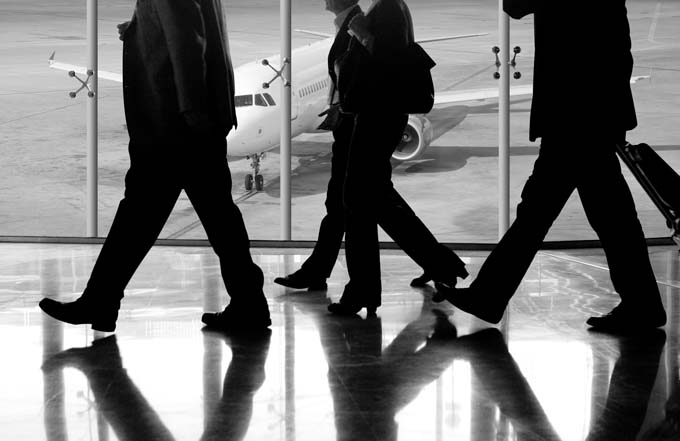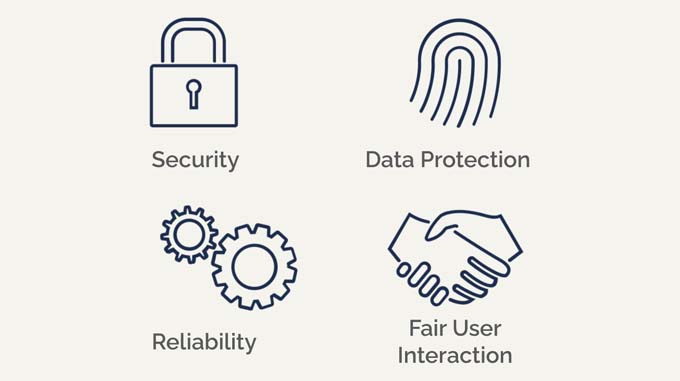Business interruption is top risk for Swiss companies
Business interruptions are still considered the greatest threat to companies worldwide - and are also the number one threat in Switzerland.

While some politicians are already categorising the new US President Donald Trump as the top risk, others see this in the upcoming elections in France and Germany, terrorist attacks in Europe, or Brexit. The fact is: uncertainties remain high in 2017. Even more than political risks, however, companies fear a business interruption that could cost them their entire existence. This is the result of the current Allianz Risk Barometer 2017, for which the industrial insurer Allianz Global Corporate & Specialty (AGCS) surveyed more than 1,200 risk managers and insurance experts from 55 countries worldwide. In Switzerland, business interruption replaced the risk of increased competition at the top of the top risks. "Companies worldwide and in Switzerland are bracing themselves for a year of uncertainty," said Bruno Spicher, head of corporate insurance at Allianz Suisse. "Hardly predictable legal or political changes as well as the current competitive environment are causing companies concern. In addition, new threats require a rethink in the management of risks."
Top risk of business interruption
A storm with massive flooding, a devastating fire, the failure of a production machine or a hacker attack - companies are exposed to a wide range of risks that can paralyze their entire production from one second to the next. According to the aforementioned Allianz Risk Barometer 2017, business interruption is the biggest corporate risk worldwide. In Switzerland, too, the risk has moved from second to first place, and for good reason, as Bruno Spicher notes: "The risk landscape for companies is changing at a rapid pace, not least due to digitalization and new technologies. And companies are becoming increasingly vulnerable to disruptions in their operations due to tight supply chains and just-in-time production." In addition, the company's own production could be damaged by so-called retroactive damage if, for example, suppliers or customers are affected by an outage. "The consequences of a business interruption can threaten a company's existence. Insurance against business interruption is therefore an absolute must for a one-man business as well as for a large company", the insurance expert is convinced. In addition, a comprehensive risk analysis for a company is necessary in advance in order to be able to weave an appropriate safety net together with the insurance partner.
Cyber risks on the rise
The fact that business interruptions are considered a top risk is also a consequence of digitalisation. This is because cyber incidents, which are ranked third in the risk ranking worldwide and in Switzerland, have risen to second place in Europe and America, and have even reached first place in the UK and Germany for the first time, can also lead to a business interruption. The exposure to cyber risks goes hand in hand with the technological shift towards a digital economy, in which the assets of many companies are shifting from originally tangible to increasingly intangible ones: data or intellectual property are thus coming into the sights of cyber criminals. Cyber incidents now go far beyond hacker attacks and data misuse and put digitally networked companies at risk in two ways: not only can they themselves become victims of hacker attacks or data theft, but they can also be affected indirectly when critical infrastructure facilities such as telecommunications, electricity or water are attacked and paralysed.
Fear of more protectionism
Market developments are considered the second most important business risk in 2017, both globally and in Switzerland. In the aviation, financial services, shipping and transport sectors, market developments are even considered the greatest business risk. To be able to react in time to sudden legal changes in the market environment, companies need to monitor political plans and their implementation more closely and devote more resources to this. According to credit insurer Euler Hermes, a subsidiary of the Allianz Group, 600 to 700 new trade barriers have been introduced globally every year since 2014. Companies must anticipate that populism and protectionism could be further boosted by recent political shifts (Brexit, US President Trump) and adversely affect their business. Concerns about Brexit and the disintegration of the eurozone are also driving the export-oriented Swiss economy, as evidenced by the rise of this risk to 8th place in the Swiss ranking.
Source and further information: www.allianz.ch









